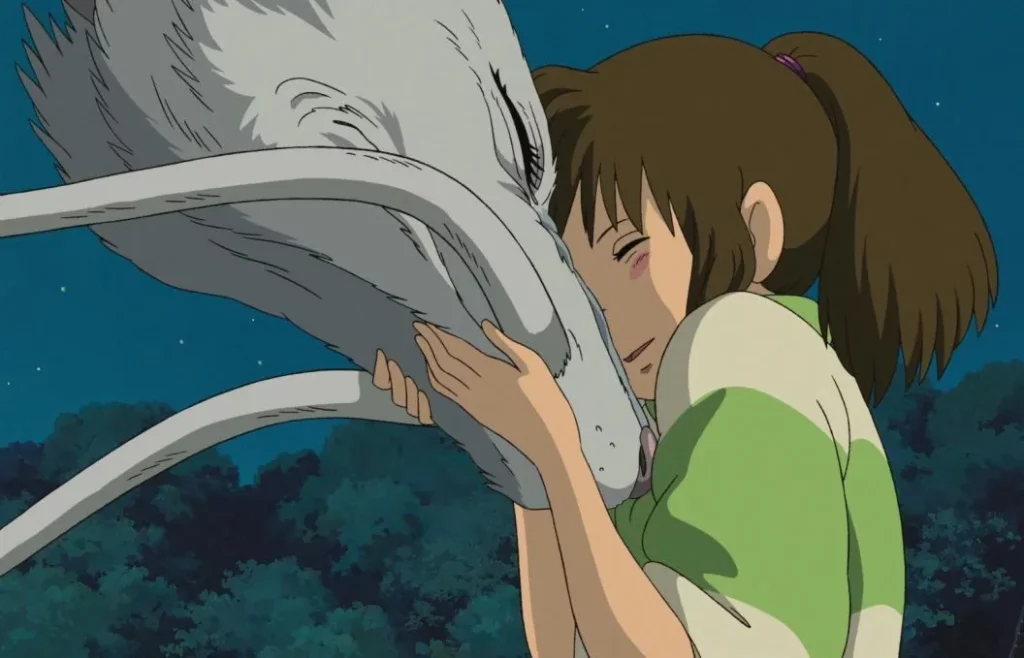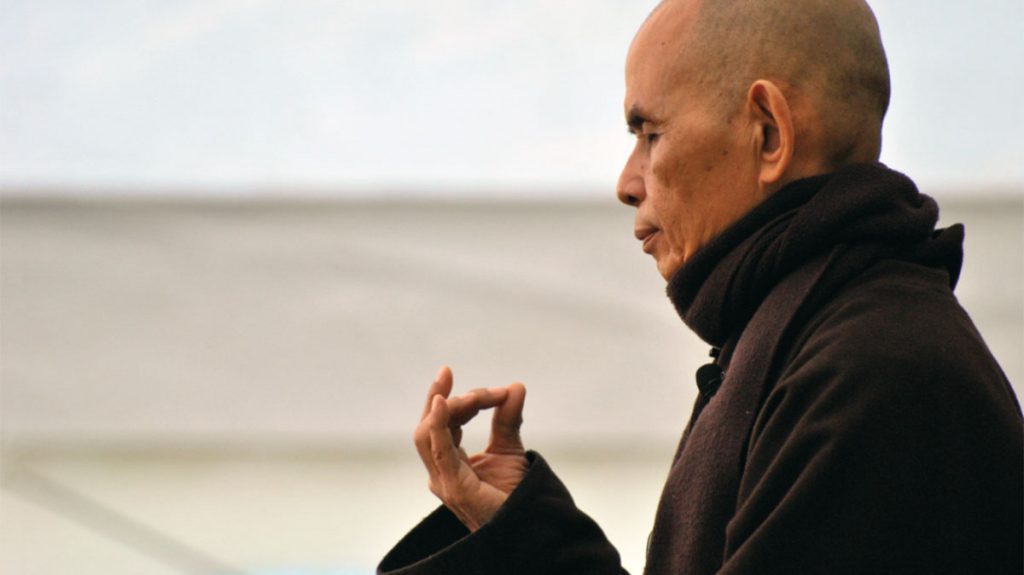
Have you ever watched an animated film and been deeply moved and inspired by the themes and messages it conveys? If not, you’re in for a treat with Spirited Away. This masterful work by Hayao Miyazaki is not just a children’s film, it is a deep and thought-provoking exploration of the human experience that adults can revisit over and over again, each time discovering new layers of meaning and understanding.
Spirited Away tells the story of Chihiro, a young girl who is transported to a magical realm and must find her way home. Along the way, she meets many strange and fantastic creatures, including a boy named Haku who helps her navigate this new world. As Chihiro begins to reveal the truth about Haku, she realizes that the evil sorceress Yubaba has trapped him into a dragon. To break the spell and help Haku remember his true nature, Chihiro must call him by his real name. After regaining his memories, Haku frees himself.
This moment in the film serves as a powerful metaphor for the idea of self-discovery and the ways in which we can forget our true selves. It is easy to get lost in the distractions and expectations of the world around us and forget the unique qualities and gifts that make us who we are. We can get caught up in roles and identities that don’t truly reflect our deepest desires.

The concept of self-discovery, or the process of discovering and understanding one’s true identity and purpose, is a central theme in many spiritual and philosophical traditions. From an existential perspective, self-knowledge involves examining the fundamental questions of existence and finding meaning and purpose in life. It requires a willingness to confront the unknown and accept the uncertainty and vulnerability that comes with authenticity and being present in the world.
Thich Nhat Hanh, a Buddhist monk and peace activist, speaks of this idea in his poem “Call Yourself by Your True Names”. In it, he writes:
“Call yourself… by your true names – And then the gates of your hearts, the gates of compassion for everything that is around – will always be open!”
These words remind us of the importance of being sincere and true to ourselves, and of the transformative power of compassion and loving kindness.
Here are some self-help tips to help you on your path to self-discovery:

- Take time to reflect on your values and priorities. What is most important to you in life? What are your hobbies and interests? What do you stand for and what do you believe in?
- Practice mindfulness and present moment awareness. It can help you stay grounded and connected to your true self, rather than getting lost in the distractions and stresses of everyday life.
- Surround yourself with supportive people who encourage and inspire you to be yourself. It could be friends, family, mentors, or even a therapist or coach.
- Experiment with new activities and hobbies that allow you to express your true self and tap into your passions and interests. It can be things like writing, painting, music, or any other activity that brings you joy and satisfaction.

Remember that the journey to self-discovery is a lifelong process, and there is no right or wrong way to do it. The most important thing is to stay true to yourself and stay open to the unknown, willingly accepting the uncertainty and vulnerability that comes with self-knowledge.
